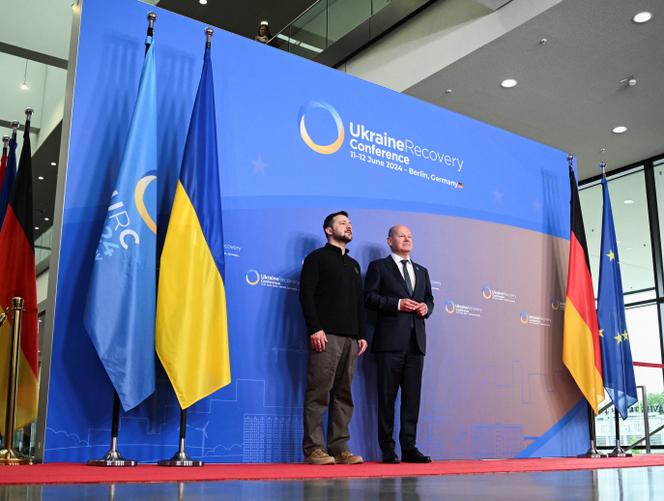
The announcement of the resignation of the head of the country’s national reconstruction agency has caused a stir among the country’s reform-minded civil society. In a letter published on his Facebook page on Monday, June 10, Mustafa Nayyem accuses the Ukrainian government of undermining his work at the institution responsible for coordinating the repair of destroyed and war-damaged infrastructure.
The announcement of his resignation could not have come at a worse time for Kyiv, as a dozen of the country’s allied states, business leaders and international organizations gather in Berlin on Tuesday and Wednesday for a conference aimed at launching projects to finance Ukraine’s long-term recovery. The conference comes on the eve of the G7 summit in Italy from Thursday to Saturday, at which further aid to Kyiv is expected to be announced.
The conference comes at a crucial time for Kyiv, as the country’s authorities lament the loss of around 50% of the country’s energy production capacity. Thermal power plants and distribution networks are in fact the target of systematic Russian strikes. “In the face of Russia’s aerial terror, urgent solutions for the energy sector will be our priority,” said Ukrainian president Volodymyr Zelensky on Monday evening, on the eve of the summit he was due to attend with other members of his government.
A highly critical picture
In addition to the date of departure, it was the comments made by Nayyem in his letter published on Monday that shocked people in Ukraine. Appointed to this crucial and delicate post in January 2023, the man condemns “constant opposition” to the agency’s work. His resignation appears to have been prompted by Prime Minister Denys Shmyhal’s decision that Nayyem would not attend the Berlin conference. The reasons for his departure were not commented on by members of the government, but anonymous state sources told several media outlets that the cancellation of his participation in the conference was due to a scheduling error and that his presence was needed in Kyiv on Wednesday.
Nayyem had been appointed to the post by the country’s former infrastructure minister, Oleksandr Kubrakov. Formerly close to Zelensky, Kubrakov was abruptly dismissed on May 9 due to what experts and journalists describe as political rivalries. Kubrakov had an excellent reputation among Ukraine’s Western interlocutors and the country’s civil society. He and Nayyem worked closely together.
The absence of official representatives in charge of the country’s reconstruction on the eve of such a summit raises fears that the country’s image, already marred by recent corruption scandals, could be further damaged. For Martina Boguslavets, director of the anti-corruption organization Mezha, the absence of such officials could give Western partners the impression that reconstruction is not an “urgent problem for Ukraine.” It could also, she argues in a column published on the Ukrainska Pravda media website, trigger a “decrease in funding” for the country, which is totally dependent on international aid, and “undermine the confidence” of Western partners.
You have 38.02% of this article left to read. The rest is for subscribers only.